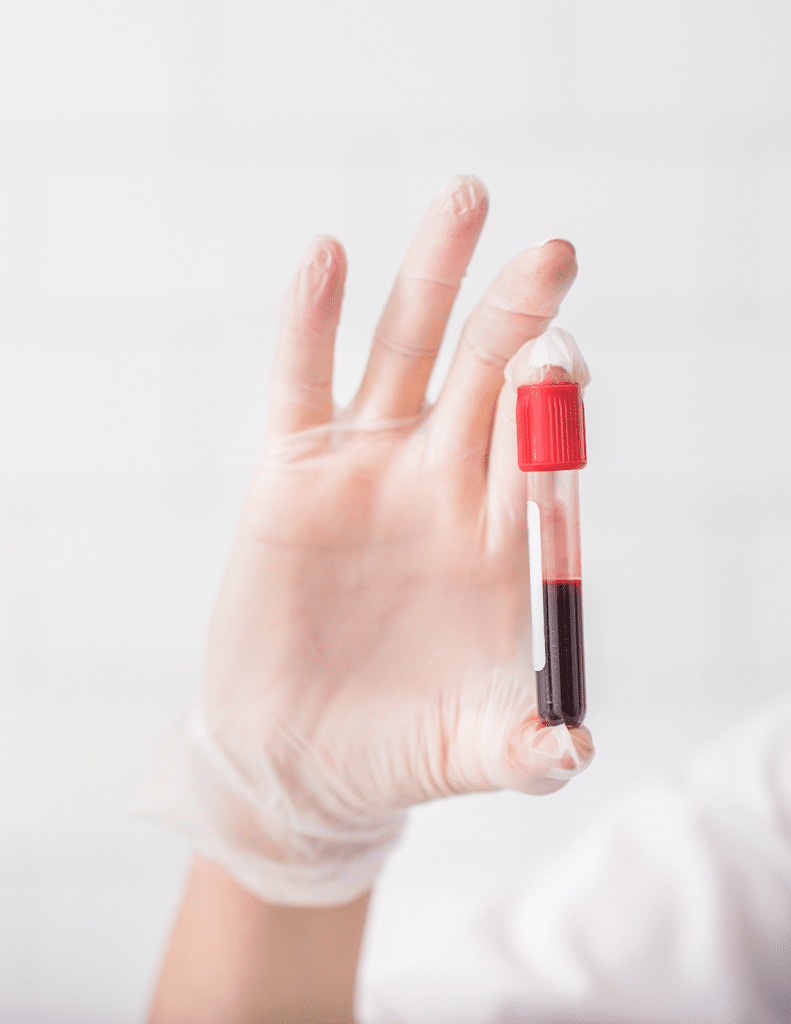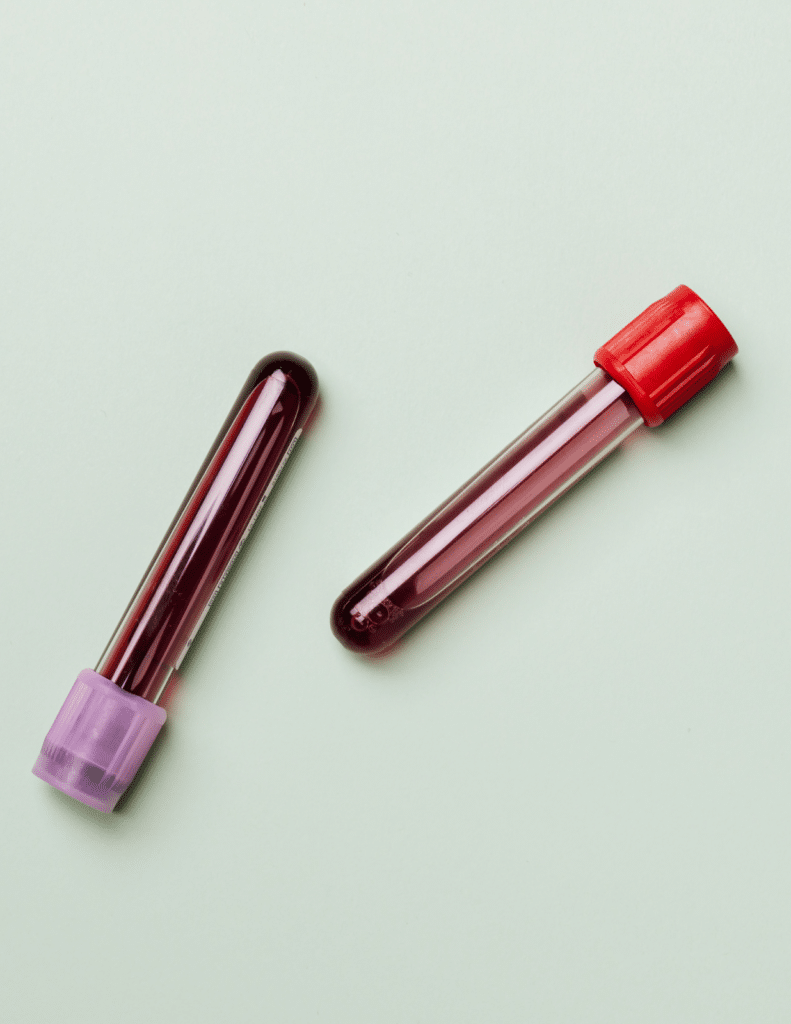
From Mood Swings to Brain Fog: How an Imbalance Hormones Test Can Help

Have you been feeling “off” lately? Maybe you’re experiencing unpredictable mood swings, struggling with persistent brain fog, or battling unexplained fatigue that won’t go away no matter how much you rest. These symptoms might seem disconnected, but they could be pointing to a common underlying issue: hormone imbalance.
Hormones act as your body’s chemical messengers, orchestrating everything from your metabolism and sleep cycles to your reproductive health and mood regulation. When these powerful chemicals fall out of balance, the effects can ripple through virtually every system in your body, creating a constellation of seemingly unrelated symptoms.
At Formula Wellness, we understand how frustrating these symptoms can be, especially when conventional testing might miss subtle hormone imbalances. That’s why comprehensive hormone testing has become an essential tool for those seeking answers to persistent health concerns. By identifying specific imbalances, our wellness experts can create personalized treatment plans that address the root cause rather than just masking symptoms.
In this guide, we’ll explore how hormone imbalance testing works, which symptoms suggest you might benefit from testing, and how addressing hormonal issues can transform your health and quality of life.
Understanding Hormone Imbalances and Their Impact
Hormones function as your body’s communication network, sending critical signals that control major bodily functions. When this delicate system falls out of balance, the effects can range from subtle to severe. Hormone imbalances can be triggered by numerous factors including aging, stress, poor nutrition, environmental toxins, certain medications, and underlying health conditions.
For women, hormone fluctuations are a natural part of the menstrual cycle, pregnancy, and menopause. However, when these fluctuations become extreme or occur outside normal patterns, they can cause significant disruption. Similarly, men experience age-related hormonal changes, particularly decreasing testosterone levels, which can affect energy, muscle mass, and mood.
Common hormones that frequently become imbalanced include:
- Estrogen and progesterone (primarily in women)
- Testosterone (important for both men and women)
- Thyroid hormones (T3, T4, and TSH)
- Cortisol (the primary stress hormone)
- Insulin (regulates blood sugar)
- Melatonin (controls sleep cycles)
The relationship between these hormones is complex and interconnected. An imbalance in one hormone often triggers a cascade effect, disrupting others in the process. For example, chronic stress elevates cortisol, which can subsequently throw off insulin regulation, sex hormone production, and thyroid function.
According to research published in 2023, approximately 80% of women and 40% of men will experience a significant hormone imbalance at some point in their lives. These statistics highlight how common these issues are, yet they often go undiagnosed or misattributed to other causes.
Common Signs You May Need Hormone Testing
Hormone imbalances can manifest through a wide variety of symptoms that might not immediately seem connected. If you’re experiencing multiple symptoms from the following list, it might be time to consider hormone testing:
Physical Symptoms
Unexplained weight changes – particularly weight gain around the midsection – often signal cortisol or thyroid imbalances. Extreme fatigue that isn’t resolved by rest might indicate issues with thyroid hormones or adrenal function. Many people also notice changes in skin health, including unusual dryness, acne breakouts, or accelerated aging.
Sleep disturbances represent another common sign of hormone imbalance. Whether you’re struggling to fall asleep, stay asleep, or waking unrefreshed, disrupted sleep patterns frequently connect to imbalances in melatonin, cortisol, or sex hormones.
Cognitive and Emotional Symptoms
The term “brain fog” has become increasingly common in describing the cognitive effects of hormone imbalances. This mental cloudiness can manifest as difficulty concentrating, problems with memory, or an inability to think clearly. The sensation is more than a simple distraction – it’s like trying to think through a haze.
Mood swings, irritability, anxiety, and depression can all stem from hormonal issues. Estrogen and progesterone fluctuations commonly affect mood in women, while both men and women can experience mood changes related to thyroid dysfunction or cortisol imbalances. Patients often report feeling “not like themselves” emotionally, experiencing reactions disproportionate to situations.
As explained by hormone specialists at Formula Wellness, these cognitive and emotional symptoms are often dismissed as stress or aging, when they actually represent treatable hormonal conditions.
Types of Hormone Testing Available
When it comes to investigating potential hormone imbalances, several testing methodologies are available, each with specific benefits and limitations:
Blood Testing

Blood tests remain the most common method for evaluating hormone levels. They provide a snapshot of hormone concentrations at a specific moment, which works well for relatively stable hormones like thyroid markers (TSH, T3, T4). Blood testing is generally covered by insurance and widely available.
However, blood testing has limitations, particularly for hormones that fluctuate throughout the day, like cortisol, or throughout the month, like estrogen and progesterone in women. A single blood draw might miss these natural variations, potentially leading to incomplete conclusions.
Saliva Testing
Saliva testing measures “free” hormone levels – the unbound hormones actively available to your cells. This testing method can be particularly useful for evaluating cortisol patterns throughout the day and certain sex hormones.
The convenience of saliva collection makes it possible to gather multiple samples over time, providing a more comprehensive picture of hormonal fluctuations. This method is increasingly preferred for evaluating adrenal function and the body’s stress response.
Urine Testing
Comprehensive urine testing, such as the DUTCH test (Dried Urine Test for Comprehensive Hormones), has gained popularity for its ability to measure hormone metabolites – the breakdown products of hormones. This provides information not just about hormone levels, but also about how your body is processing and eliminating these hormones.
For example, urine testing can reveal whether estrogen is metabolizing down healthy or potentially harmful pathways, offering insights beyond simple concentration measurements. At Formula Wellness, specialists often recommend comprehensive testing approaches that combine multiple methods for the most complete picture.
The Hormone Testing Process: What to Expect
If you’re considering hormone testing, understanding the process can help you prepare and get the most accurate results. While specifics may vary depending on the provider and testing methods, here’s a general overview of what to expect:
Initial Consultation
The process typically begins with a comprehensive consultation where a healthcare provider reviews your medical history, current symptoms, lifestyle factors, and any medications you’re taking. This information helps determine which hormones should be tested and which testing methods are most appropriate for your situation.
During this consultation, be prepared to discuss your symptoms in detail – keeping a symptom journal for a few weeks beforehand can be extremely helpful. Note patterns, triggers, and how symptoms correlate with your menstrual cycle (if applicable).
Test Preparation
Depending on the type of testing ordered, you may need to follow specific preparation instructions. These might include:
- Fasting before blood draws
- Avoiding certain foods or supplements that could interfere with results
- Timing tests appropriately during your menstrual cycle
- Following specific collection protocols for saliva or urine samples
Following these instructions precisely helps ensure the most accurate results. For example, cortisol testing often requires samples at specific times throughout the day to capture natural fluctuations.
Sample Collection and Analysis
The collection process varies by test type:
- Blood tests are typically drawn at a lab facility or medical office
- Saliva tests may be collected at home using special tubes
- Urine tests might involve collecting samples throughout the day or using specialized collection papers
After collection, samples are sent to specialized laboratories for analysis. Processing typically takes anywhere from a few days to two weeks, depending on the complexity of the testing panel.
Interpreting Your Hormone Test Results
Understanding hormone test results requires looking beyond simple “normal” or “abnormal” classifications. Here’s what to know about the interpretation process:
Beyond Reference Ranges
While laboratories provide reference ranges for each hormone, these ranges are often quite broad and represent the statistical average across populations. What’s “normal” for the general population might not be optimal for your individual health.
Experienced practitioners evaluate your results in the context of your specific symptoms, age, health status, and the relationship between different hormones. The interaction between hormones often provides more clinical insight than absolute values alone.
Common Patterns and What They Mean

Certain patterns frequently emerge in hormone testing:
Estrogen dominance: Characterized by high estrogen relative to progesterone, this pattern often manifests as heavy periods, breast tenderness, mood swings, and weight gain, particularly in the hips and thighs.
Low testosterone: In men, this typically causes fatigue, muscle loss, decreased libido, and mood changes. In women, low testosterone can affect energy, muscle tone, and sexual function.
Cortisol dysregulation: Either chronically high or low cortisol (or disrupted daily patterns) signals adrenal issues that can affect energy, sleep, immunity, and other hormone systems.
Thyroid imbalances: Both hypothyroidism (low thyroid function) and hyperthyroidism (overactive thyroid) create widespread symptoms affecting metabolism, energy, mood, and virtually every body system.
As explained in a 2024 journal article on integrative endocrinology, these patterns rarely exist in isolation. For instance, chronic stress leading to cortisol dysregulation often eventually impacts thyroid function and sex hormone production, creating complex hormonal cascades.
Treatment Approaches for Hormone Imbalances
Once hormone imbalances are identified, several treatment approaches may be recommended:
Bioidentical Hormone Replacement Therapy
Bioidentical hormones have the same molecular structure as those naturally produced by your body. When prescribed and monitored by qualified practitioners, bioidentical hormone replacement therapy (BHRT) can effectively restore balance.
BHRT may be delivered through various methods including:
- Creams and gels applied to the skin
- Oral capsules or tablets
- Pellets inserted under the skin
- Injections
The delivery method is chosen based on the specific hormones being replaced, your preference, and what will provide the most consistent levels for your situation.
Lifestyle Modifications
Hormone balance is significantly influenced by daily habits. Key lifestyle factors that support hormone health include:
Nutrition: Anti-inflammatory diets rich in healthy fats, lean proteins, and abundant vegetables provide the building blocks for hormone production. Certain nutrients like zinc, magnesium, and vitamin D play particularly important roles in hormone synthesis.
Exercise: Regular physical activity supports insulin sensitivity and healthy cortisol patterns. However, excessive exercise can sometimes worsen hormone imbalances, especially in those with adrenal fatigue or thyroid issues.
Stress management: Since chronic stress directly impacts cortisol and subsequently other hormones, stress reduction techniques are essential. Meditation, yoga, adequate sleep, and nature exposure all help regulate stress hormones.
Environmental considerations: Reducing exposure to endocrine-disrupting chemicals found in plastics, conventional cleaning products, and personal care items can support hormone balance.
Targeted Supplementation
Specific supplements can support hormone production and metabolism:
- Adaptogenic herbs like ashwagandha and rhodiola help normalize cortisol patterns
- Vitamin D, magnesium, and zinc support testosterone production
- B-complex vitamins aid in hormone detoxification
- Omega-3 fatty acids reduce inflammation that can disrupt hormone signaling
At Formula Wellness Center, providers often take a comprehensive approach that combines these treatment strategies for optimal results.
How Hormone Balance Affects Aesthetics and Aging

Hormone balance plays a significant role in how we age, both internally and externally. When hormones are optimized, the effects become visible in multiple ways:
Skin Health and Appearance
Estrogen significantly influences skin thickness, hydration, and collagen production. As estrogen levels decline with age, many women notice increased dryness, thinning skin, and accelerated wrinkle formation. Similarly, testosterone helps maintain skin thickness and oil production in both men and women.
Thyroid hormones regulate cellular turnover, including skin cell regeneration. Imbalances can lead to dull complexion, poor wound healing, and altered texture. Cortisol, when chronically elevated, breaks down collagen and elastin, accelerating the visible aging process.
Hormone optimization therapy often results in noticeable improvements in skin elasticity, hydration, and overall appearance. When combined with treatments like Morpheus8, the results can be particularly transformative, addressing both the internal hormonal factors and external skin concerns.
Body Composition
Hormone imbalances frequently affect body composition, particularly the distribution of fat and maintenance of muscle mass. Insulin resistance tends to increase abdominal fat storage, while low testosterone can reduce muscle mass and increase overall body fat percentage.
Thyroid hormones regulate metabolic rate, directly impacting how efficiently the body burns calories. Even subtle hypothyroidism can make weight management significantly more challenging.
Patients who address underlying hormone imbalances often report that previously stubborn weight issues become more responsive to diet and exercise. Many find that restoring hormone balance helps them achieve a healthier body composition without extreme dietary measures.
Frequently Asked Questions
How do I know if my symptoms are caused by hormone imbalance or something else?
Many symptoms of hormone imbalance overlap with other conditions, which is why proper testing is essential. If you’re experiencing a cluster of symptoms like fatigue, mood changes, weight fluctuations, sleep disturbances, and cognitive issues, hormones are a likely factor. However, these same symptoms could also indicate other health conditions like autoimmune disorders, nutritional deficiencies, or mental health concerns.
A comprehensive evaluation that includes hormone testing along with other appropriate assessments will help differentiate between these possibilities and lead to the most effective treatment approach.
Are hormone tests covered by insurance?
Coverage varies significantly depending on your insurance plan and the type of testing being performed. Basic blood hormone panels ordered by physicians are often covered, particularly when there’s a clear medical indication like irregular menstrual cycles or symptoms of thyroid dysfunction.
More comprehensive testing methods like the DUTCH test or extensive saliva testing are less frequently covered by traditional insurance. Many functional and integrative medicine practitioners offer these tests on a cash-pay basis. We recommend checking with your insurance provider about specific coverage details before proceeding with testing.
How long does it take to correct hormone imbalances?
The timeline for resolving hormone imbalances varies based on the specific imbalances, their severity, and the treatment approach. Some patients notice improvements within days to weeks of starting hormone replacement therapy. Others, particularly those using lifestyle modifications and supplements as their primary approach, may need 3-6 months to see significant changes.
Thyroid optimization typically takes 6-8 weeks as dosages are adjusted. Keep in mind that hormone balance is an ongoing process, not a one-time fix. Regular monitoring and adjustments are typically necessary as your body changes over time.
Can men experience hormone imbalances too?
Absolutely. While hormone imbalances are often discussed in relation to women, men experience significant hormonal shifts as well. Testosterone gradually declines with age (sometimes called andropause), typically beginning around age 30 and continuing throughout life. Men can also experience thyroid disorders, cortisol dysregulation from chronic stress, and imbalances in estrogen metabolism.
Symptoms in men often include fatigue, reduced muscle mass, increased body fat, mood changes, cognitive issues, and sexual dysfunction. Hormone testing and optimization can be just as beneficial for men as it is for women.
Is hormone testing safe during pregnancy?
Basic blood hormone testing is generally considered safe during pregnancy, particularly when there’s a medical necessity such as monitoring thyroid function. However, comprehensive hormone panels are typically avoided during pregnancy unless specifically indicated by your healthcare provider.
During pregnancy, hormone levels naturally shift dramatically to support fetal development, making many standard hormone assessments less relevant. After pregnancy and breastfeeding are complete, comprehensive hormone testing can help identify imbalances that may have developed or worsened during this physiologically demanding time.
Unlock Better Health Through Targeted Hormone Testing and Treatment
Hormone imbalances can affect virtually every aspect of your health and wellbeing, from your energy levels and cognitive function to your emotional stability and physical appearance. By understanding the signs of hormone imbalance and pursuing appropriate testing, you can take a crucial step toward resolving persistent symptoms that might otherwise be misattributed or left untreated.
At Formula Wellness, our comprehensive approach to hormone testing and treatment addresses the root causes of your symptoms rather than merely masking them. Whether you’re struggling with fatigue, mood issues, weight concerns, or accelerated aging, optimizing your hormones could be the key to reclaiming your vitality and feeling like yourself again. Contact our team today to learn how hormone testing might be the missing piece in your health puzzle.
About Formula Wellness
Formula Wellness is a physician-led, integrative health center dedicated to helping individuals achieve optimal wellness through proactive, personalized care. With locations across the country, our team combines advanced diagnostics with evidence-based treatments to target the root causes of your symptoms—not just the surface effects.
Our services include hormone optimization, medical weight loss, IV therapy, aesthetic enhancements, and longevity-focused treatments, all designed to support your health from the inside out. Whether you’re navigating the effects of aging, stress, or chronic fatigue, our goal is to restore your balance and enhance your performance—physically, mentally, and emotionally.Visit FormulaWellness.com to schedule your consultation and take the next step toward better living.